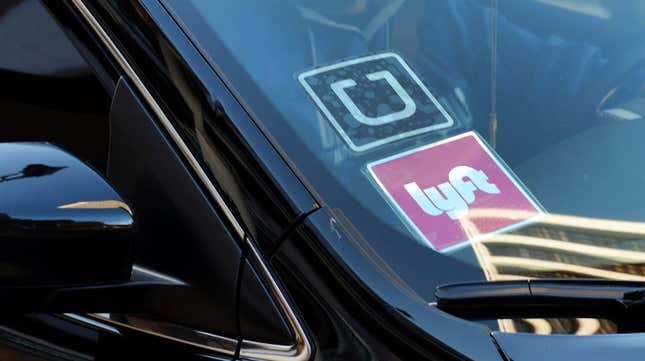
It’s been two years since Proposition 22 passed in California (though it was later ruled unconstitutional), and even longer since rideshare companies first started siding with tech companies and claiming its drivers are self-employed, but Lyft is back at it again. Now, the Boston Globe reports that the company is throwing money at yet another attempt to prevent its drivers from being classified as employees.
The ride-hailing company has made the single largest political donation in Massachusetts state history to fund the fight: $14.4 million. That donation is also the largest ever given out of the coalition of tech companies backing the measure called Coalition for Independent Work, which includes companies like Doordash.
The money is being used to pay for a small army of political consultants, some of the best in the state. The consultant list also includes a firm started by Massachusetts Rep. Ayanna Pressley’s husband. From the Globe:
On the committee’s payroll are the Dewey Square Group, a public affairs firm with deep roots in Democratic politics, and Solomon McCown & Cence, a public relations outfit well versed in ballot question fights.
The committee also enlisted Conan Harris & Associates, a management consulting firm run and founded by the husband of Representative Ayanna Pressley. Harris’s work appears to put him at direct odds with Pressley’s own stance on the issue. The second-term Boston Democrat has backed calls to treat gig workers as employees, arguing last year that they are being “misclassified” as contractors.
Solomon McCown & Cence were also behind the fight against last fall’s Right to Repair bill.
The measure, which goes to the ballot in November, seeks to entice drivers with low hanging fruit in exchange for their cooperation: perks like healthcare stipends, a minimum pay requirement while completing tasks (but not while waiting on one), and paid driver training in exchange for a state law cementing their classification as independent contractors.
The president of one of the groups of laborers that form The Coalition to Protect Workers’ Rights, which opposes the law, called what Lyft and its coalition is doing an attempt to “buy a giant loophole” but admitted that it might be hard for the worker’s rights coalition to outspend the tech companies.